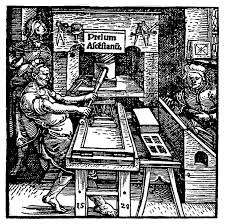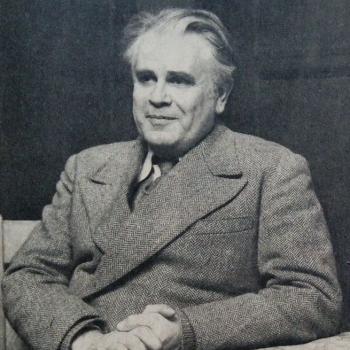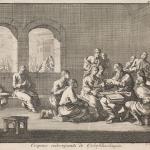We live in an era of information glut. The bits of information about the world around us are rushing like water out of a firehose. So, the need for selection, curation is enormous. And with that the quest for unbiased news.
Of course there are just so many questions that go begging when we say something like “unbiased news.” For nearly everyone, okay, let me go out on a limb and say everyone carries biases. After all another term for that is having an opinion. We see everything through lenses. The question really is where can I get news that is honestly curated and fairly presented? While there are those who say even this is not possible, I do not go anywhere near that far. I find people can want to be objective, to see clearly, and there are ways of keeping oneself honest in the enterprise.
And that’s the project of curation. While I very much believe there’s a place for citizen journalism, particularly as the time constraints that lead to curation also mean that a world of information is lost to those user of any one or two or even a dozen outlets, and equally with the blind spots anyone has, particularly larger societal assumptions that need challenging. But, frankly, there is little comparable to the quality one can get with a professional, someone who has been trained in how to discern the core information in something that is going on and to present it in an accessible manner.
This reflection is mostly concerned with electronic media, but first a word for print news. While they’ve suffered terribly in recent years they have historically and continue to be critical sources of information to understand what is happening in our lives. Also, they remain about the only ongoing and reliable sources for local news. (My opinions about broadcast news national and local, anon) I believe it is important to investigate your local newspapers, and probably, you need to at least regularly visit their websites and probably if they have a firewall, money up the money for a subscription. Because it is necessary, here’s a nice article on how to read a newspaper. I rather enjoyed this just for fun article on the joy of the newspaper. You might, too…
Now, some of the problems with bias come from the consumers of news. And its wise not to miss that. A good article to read about the viewership of various news outlets published by the Washington Post in 2012, can help you sort out what biases are congenial for you. Then we’ll move on to that news honestly curated and fairly presented. But, first, for those who don’t want to read the whole thing, this is the most important part, as I read it.
1) The most-preferred media outlets of liberals, according to Pew’s study, are the New Yorker and Slate.
2) Fox News’s viewership is pretty moderate compared to the Hannitys, Limbaughs, Becks and Breitbarts. This is probably because Fox’s audience is just so large that it couldn’t be relegated to an extreme end of the chart. But even liberals watch Fox.
3) The broadcast stations (NBC, CBS, ABC) and online news sites like Yahoo and Google have a more middle-of-the-road audience than other mainstream media outlets. People who read BuzzFeed, Politico, The Washington Post and The New York Times all tend to be more liberal.
4) MSNBC, despite its reputation as the most liberal cable news network, has a more moderate audience than the four publications mentioned above — and only a slightly more liberal audience than CNN.
5) About half of the 32 outlets have an audience that pretty clearly leans to the left, while seven have audiences that lean conservative. The rest (including all the broadcast networks) are somewhere near the middle.
In fact the broadcast networks are pretty accurate in their reporting, if they have a tendency toward the old news maxim, “if it bleeds, it leads.” Their biggest problem is that between that going for the messy and spectacular they are little more than headline services, for me the curation is too cut to close too the bone. And I have to admit I’ve stopped regularly viewing any of them, with the sole exception of PBS’ Newshour. More on that in a moment. Of the cable news programming, I find the real examples of news outlets who let their editorial/political positions bleed into their coverage of the news. And it is here we find Fox News and MSNBC. While I’ve found a lot of hard complaints from right and right leaning commentators about CNN, and an occasional rant from the left, CNN seems to be the cable news service that wants to play it “down the middle.”
Now, as a person of the left, I enjoy MSNBC for commentary, but I do not rely upon them for news. I would encourage my friends on the right to be equally suspicious of the reporting on Fox.
Here’s a pretty good listing of news outlets that should be avoided if one wants accuracy together with a list of news outlets that you should always confirm with other sources before believing. It also lists some satire sites that become the source of false news memes. Sadly, in our increasingly uncritical times, some pretty outrageous things are just believed. Some of these sites, like the Onion, are a delight to read in context, others, like the Daily Currant are easy to be confused by, because they aren’t particularly funny from any perspective. Here I fear we find many examples of why it might be useful for people to at least familiarize themselves with the major logical fallacies, ignorance of which sets people up for bad things.
Generally, if I find something suspicious I like to look to see who else is covering the story. The google machine really can be useful. One quickly gets a sense of what outlets seem to go for the story no one else seems to think warrants the headline they banner. Pretty much all of us should have a direct link to Snopes. A particularly good source for checking out assertions by politicians which can be reported as news, but whose factuality seems suspect is FactCheck.org.
For me probably the number one source is Reuters. They are the cleanest of the news outlets I am aware of. And the vast majority of people who study such things say so, as well. You can’t go wrong with this as a primary source – although, again, curation is as I hope I’ve said adequately a project in selection, and getting some more sources is pretty much critical.
Right after them, I think the Associated Press is reliable and intellectually honest. Their stock in trade is useful curation and accuracy. As with Reuters when they make mistakes they quickly own up to them. These two are my major sources of national and world news. It helps that one is English in origin and the other American.
There are a handful of news outlets that aspire to accuracy above conforming to their real or sometimes perceived political leanings, and which I find worth visiting regularly. These include PBS and particularly the Newshour, which I find about the only broadcast news program worth tuning into. For the web, the BBC, and the clearly left leaning but reliable Independent are regular visits for me. I also find Politico a good source for inside the beltway perspectives (as one commentator called it “palace intrigue.”) And for the current race for president the go to for me is FiveThirtyEight.
Not a complete analysis, of course. And, I know this reflection ignores the importance of international sources for news beyond the Anglo-American world. Maybe in the future.
In the meantime, I hope of some use…













